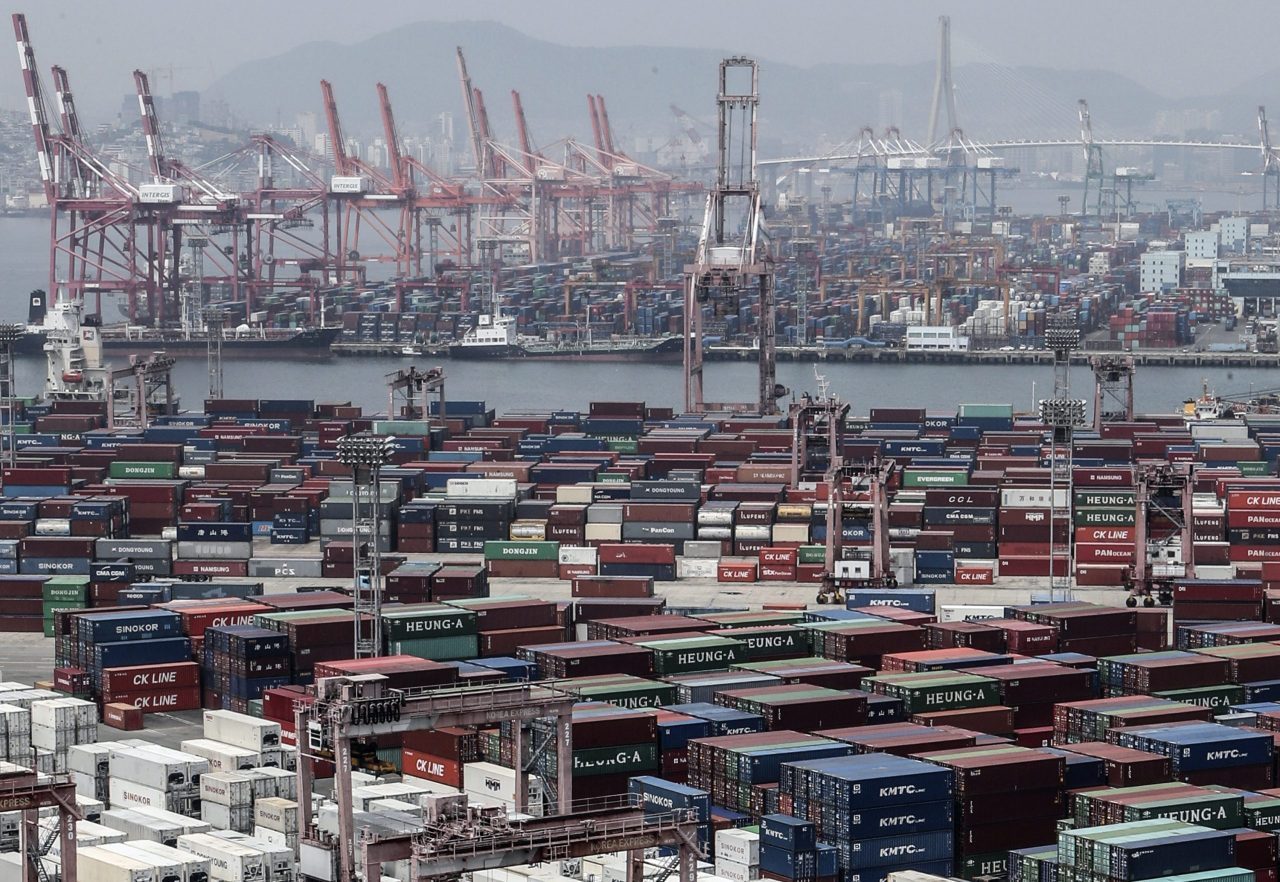 |
This undated file photo shows stacks of import-export cargo containers at South Korea's largest seaport in Busan, 450 kilometers southeast of Seoul. (Yonhap) |
South Korea's central bank on Thursday held its benchmark policy rate unchanged at a record low of 0.5 percent, as an economic recovery remained patchy and the country is at risk of being hit with another wave of COVID-19 infections.
As widely expected, the monetary policy board of the Bank of Korea (BOK) voted to leave the base rate steady in this year's third rate-setting meeting.
Low inflationary pressure and rising home prices also appeared to prod the BOK board to stand pat, analysts said.
In February, the BOK froze the key rate as economic uncertainty heightened amid a flare-up in new coronavirus cases.
To bolster the pandemic-hit economy, the BOK slashed the key rate to the all-time low of 0.5 percent in May last year after delivering an emergency rate cut of half a percentage point.
Despite signs of a recovery in exports, weaker consumption has weighed on employment and increased pressure on policymakers.
This week, the nation's daily virus tally hit the highest level in more than three months as cluster infections continued to emerge in the greater Seoul area.
"While the Korean economic recovery is expected to strengthen gradually, there is still a high level of uncertainty surrounding the path of COVID-19 and inflationary pressures on the demand side are forecast to be modest," the BOK said in a statement. "Thus, the Board will maintain its accommodative stance of monetary policy."
"Going forward, the economy is likely to continue its recovery, led by exports and investment. However, uncertainties surrounding the pace of recovery are judged to remain elevated," it said. "GDP growth this year is projected to be above the February forecast of 3.0 percent."
South Korea's economy contracted 1 percent last year, marking the worst performance in over two decades, but it appears to have returned to a growth track on the back of a mild recovery in exports.
Exports grew 16.6 percent on-year to $53.8 billion in March, helped by solid demand for chips and autos, to extend their gains for the fifth consecutive month.
Imports rose 18.8 percent to $49.6 billion, resulting in a trade surplus of $4.17 billion. It marked the 11th consecutive month for the country to post a trade surplus.
The number of employed people reached 26.9 million last month, 314,000 more than a year earlier, according to the data compiled by Statistics Korea.
It marked the first time that South Korea's economy added jobs since February 2020, when the number of employed people grew by 492,000.
BOK Gov. Lee Ju-yeol has said the nation's economic growth is likely to exceed this year's outlook of 3 percent, while the International Monetary Fund raised South Korea's growth outlook to 3.6 percent for this year. (Yonhap)








